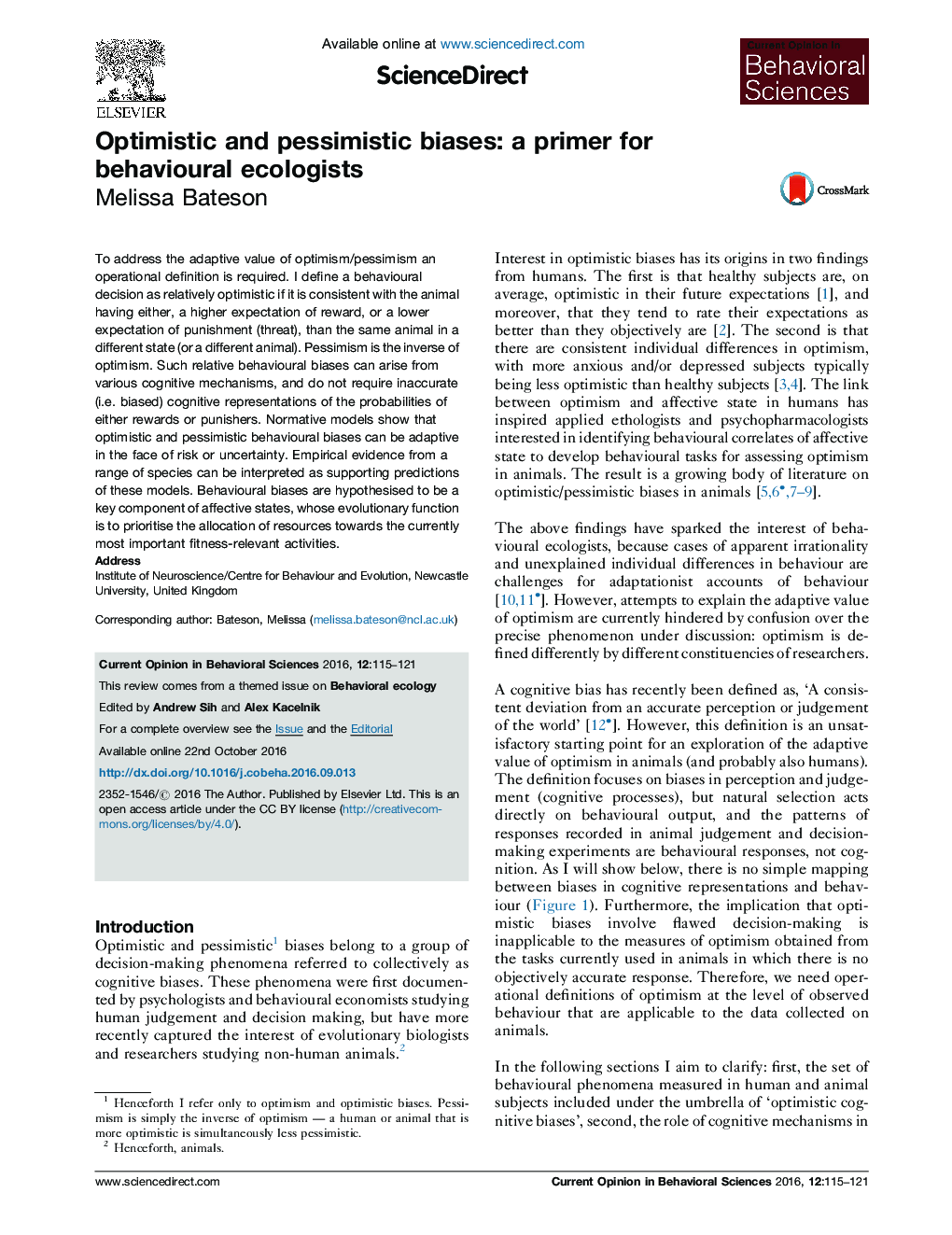| کد مقاله | کد نشریه | سال انتشار | مقاله انگلیسی | نسخه تمام متن |
|---|---|---|---|---|
| 6260422 | 1613078 | 2016 | 7 صفحه PDF | دانلود رایگان |
- Optimism and pessimism can be defined operationally, and hence applied to non-human animals.
- Optimism is defined as a higher expectation of reward or a lower expectation of punishment.
- Behavioural biases do not imply biases in cognitive representations of probability of reward or punishment.
- Behavioural biases can be adaptive.
- Behavioural biases are a key functional component of affective states.
To address the adaptive value of optimism/pessimism an operational definition is required. I define a behavioural decision as relatively optimistic if it is consistent with the animal having either, a higher expectation of reward, or a lower expectation of punishment (threat), than the same animal in a different state (or a different animal). Pessimism is the inverse of optimism. Such relative behavioural biases can arise from various cognitive mechanisms, and do not require inaccurate (i.e. biased) cognitive representations of the probabilities of either rewards or punishers. Normative models show that optimistic and pessimistic behavioural biases can be adaptive in the face of risk or uncertainty. Empirical evidence from a range of species can be interpreted as supporting predictions of these models. Behavioural biases are hypothesised to be a key component of affective states, whose evolutionary function is to prioritise the allocation of resources towards the currently most important fitness-relevant activities.
Journal: Current Opinion in Behavioral Sciences - Volume 12, December 2016, Pages 115-121
